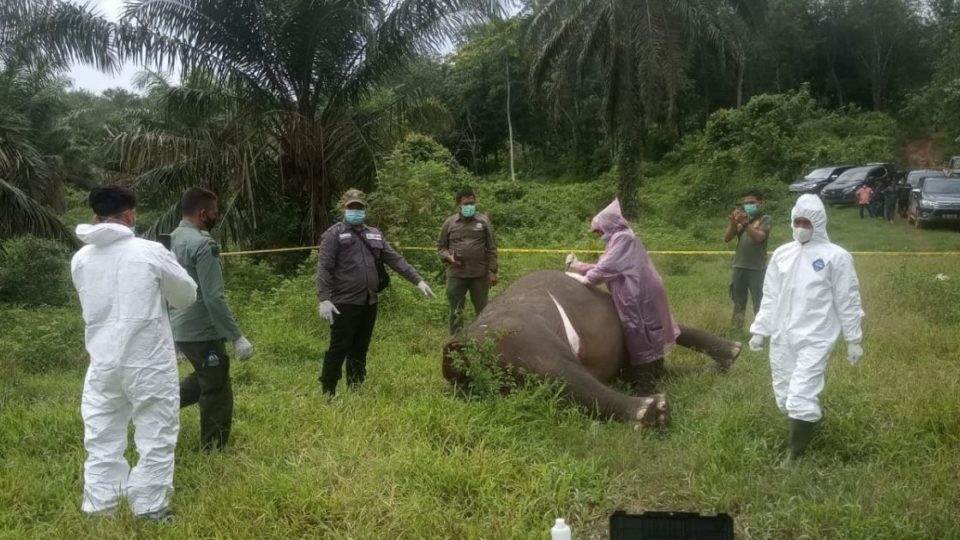A decapitated Sumatran elephant was found in Aceh province this week, with authorities suspecting that the endangered animal was killed for its tusks after finding traces of poison in its digestive system.
The elephant’s carcass was found at a palm plantation located in East Aceh’s Banda Alam district on Sunday by a worker, who reported the gruesome discovery to local authorities. An inspection of the scene and a necropsy soon followed.
The elephant’s trunk was located at least 10 meters away from the carcass, while the tusks were nowhere to be found. Agus Arianto, who heads the Natural Resources Conservation Center (BKSDA) in Aceh, estimated the elephant to be about 12 years old.
“The results of the necropsy revealed that there were two packs of what is suspected as poison inside the elephant’s digestive system. Our initial suspicion is that the death of the wild elephant was due to the poison found in the digestive tract,” Agus said today.
Authorities will further examine the poison packs, as well as samples taken from the elephant’s organs. Authorities suspect that poachers might be behind the elephant’s death, and that its head was taken elsewhere for the tusks to be cut off.
“This could lead to [ivory] poaching. We’re still suspecting it. It’s leading in that direction because there was no head, and the tusks were allegedly taken,” Agus said.
Sumatran elephants (Elephas maximus sumatranus), a subspecies of Asian elephants, are a critically endangered species. They are protected under Indonesia’s laws on conservation, but continue to face serious threat in places like Sumatra island today, including illegal logging, human-wildlife conflict and illegal hunting — in which poachers mostly kill the animal for their tusks.




